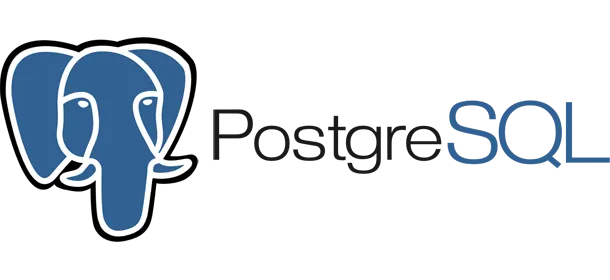
Is There Any Best AI GPT for PostgreSQL Database? In the ever-expanding realm of data management, PostgreSQL stands tall as a beacon of innovation and reliability. As an advanced, open-source relational database system, PostgreSQL offers a myriad of features that cater to diverse data needs across industries. From its robust performance to its compatibility with various data types, PostgreSQL continues to shape the landscape of modern information systems.
Is There Any Best AI GPT for PostgreSQL Database?
Why PostgreSQL?
PostgreSQL’s appeal lies in its open-source nature, providing advanced functionalities without the burden of proprietary costs. Here’s why PostgreSQL remains a preferred choice:
1. Open Source: PostgreSQL is free to use, modify, and distribute, fostering a vibrant community of contributors.
2. Advanced Features: With support for sophisticated data types, robust locking mechanisms, and full ACID compliance, PostgreSQL ensures transaction reliability and performance.
3. Extensibility: PostgreSQL offers a powerful extension framework, allowing users to augment functionalities as per their requirements.
4. Performance and Reliability: Engineered for high performance and scalability, PostgreSQL is suitable for critical applications, from single machines to large-scale data warehouses.
Use Cases for PostgreSQL
The versatility of PostgreSQL extends across various domains:
1. Web Applications: PostgreSQL serves as a reliable backend for dynamic websites and applications, ensuring seamless data management.
2. Geospatial Databases: With PostGIS, PostgreSQL excels in managing geographic information systems, catering to spatial data needs effectively.
3. Financial Systems: PostgreSQL guarantees data integrity and supports complex transaction processing, making it an ideal choice for financial applications.
4. Data Warehousing: PostgreSQL handles large volumes of data with ease, offering powerful analytical tools and extensions for efficient data warehousing solutions.
Differences Between SQL and PostgreSQL
While SQL serves as a standard language for database operations, PostgreSQL extends its capabilities with advanced features:
| Feature | SQL | PostgreSQL |
|---|---|---|
| Definition | A widely-accepted language for the storage, manipulation, and retrieval of data within database systems. | A relational database management system (RDBMS) that harnesses SQL and operates under an open-source model. |
| Type | Language | Software/Database System |
| Scope | Used in various RDBMS like MySQL, PostgreSQL, SQL Server, etc. | An RDBMS with unique extensions that adhere to the SQL standard while augmenting it with its proprietary features. |
| Functionality | Defines the structure of database operations such as queries, updates, etc. | Offers a framework for data storage, manipulation, and retrieval through SQL, while also accommodating advanced functionalities that surpass the conventional SQL standard. |
| Extensibility | Limited to the capabilities defined by the SQL standard and its implementations. | Offers advanced features like custom data types, table inheritance, etc. |
| Customization and Extensions | Limited to the capabilities defined by the SQL standard and its implementations. | Embraces diverse extensions such as PostGIS for geographic data management and TimescaleDB for handling time-series data, broadening its functionality spectrum.. |
| Performance Optimization | SQL’s performance depends on the RDBMS implementation and optimization. | Offers advanced optimization features like index-only scans, bitmap heap scans, etc. |
| Community and Support | Broad, as it is a standard implemented by many database systems. | Very active, with a focus on PostgreSQL development, extensions, and optimizations. |
| Usage | Used to interact with and manipulate databases. | Used as a database server to manage data securely and efficiently, supporting both SQL for standard operations and procedural languages. |
Top 9 AI GPT for PostgreSQL Database
- TimescaleDB: An open-source time-series SQL database built as an extension for PostgreSQL, offering scalability, reliability, and advanced analytical features.
- pgMustard: A performance analysis tool tailored for PostgreSQL queries, providing actionable insights to optimize query performance.
- Dbt (Data Build Tool): A command-line tool enabling effective data transformation in data warehouses, facilitating modular SQL queries and automated testing.
- PGLoader: A flexible tool for migrating data to PostgreSQL from various sources, supporting data transformation and parallel loading for efficient migration.
- pganalyze: A monitoring and optimization tool for PostgreSQL databases, offering detailed insights into performance and query optimization.
- Citusdata: An open-source extension for PostgreSQL that transforms it into a distributed database, enabling real-time analytics and high-performance transactional applications at scale.
- Postgres AI: Provides cutting-edge database management and optimization solutions, encompassing functionalities like database replication and performance analysis powered by artificial intelligence (AI)
- MindsDB: An open-source AI platform that integrates directly with PostgreSQL, allowing users to create and deploy machine learning models within the database.
- JetBrains Datalore: An online computational notebook for data science, offering a collaborative environment with smart coding assistance tailored for data analysis and visualization.
In conclusion, PostgreSQL remains at the forefront of modern data management, bolstered by a rich ecosystem of AI tools that enhance its capabilities further. As industries continue to harness the power of data, PostgreSQL stands as a reliable companion, empowering organizations to unlock valuable insights and drive innovation in the ever-evolving technological landscape.
For more article like this visit ElectronicBro